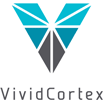How to adopt cloud native machine learning with Kubernetes and Kubeflow
Level
Prerequisite knowledge
- A high-level understanding of cloud native applications and machine learning
What you'll learn
- Learn how Kubeflow can make your ML pipelines composable, portable, and scalable
Description
While machine learning has caught the attention of nearly every organization looking to improve their efficiency and processes, the implementation of real-world solutions remains very challenging. Most organizations build custom-made, difficult-to-maintain platforms over many months before getting a single answer and then are required to support these fragile platforms long into the future. A year and a half ago, Microsoft introduced the Kubeflow project to make end-to-end ML pipelines on Kubernetes composable, portable, and scalable. Today, thanks to passionate contributors from all over the world, the company has the most popular ML platform for Kubernetes.
David Aronchick talks about what Microsoft has learned since building the community from scratch, how the company is able to abstract away “the hard stuff” to let developers and data scientists focus on what really matters, and where the Kubeflow project is going next. Additionally, he demonstrates how to use Kubeflow pipelines to wire together and track experiments over time, enabling advanced scenarios such as multicloud ML with continuous training and hosted services. With these tools and the support of hundreds of developers and organizations, Microsoft is able to bring ML to an entirely new audience, where as long as you can code, you can build complete end-to-end machine learning solutions.

David Aronchick
Microsoft
David Aronchick leads open source machine learning strategy at Azure. He spends most of his time helping humans convince machines to be smarter. (He’s only moderately successful at this.) Previously, he led product management for Kubernetes on behalf of Google, launched Google Kubernetes Engine, and cofounded the Kubeflow project. He’s also worked at Microsoft, Amazon, and Chef and cofounded three startups. When not spending too much time in service of electrons, he can be found on a mountain (on skis), traveling the world (via restaurants), or participating in kid activities, of which there are a lot more than he remembers when he was that age.
Sponsorship Opportunities
For exhibition and sponsorship opportunities, email velocity@oreilly.com
Partner Opportunities
For information on trade opportunities with O'Reilly conferences, email partners@oreilly.com
Contact Us
View a complete list of Velocity contacts
©2019, O'Reilly Media, Inc. • (800) 889-8969 or (707) 827-7019 • Monday-Friday 7:30am-5pm PT • All trademarks and registered trademarks appearing on oreilly.com are the property of their respective owners. • confreg@oreilly.com

















